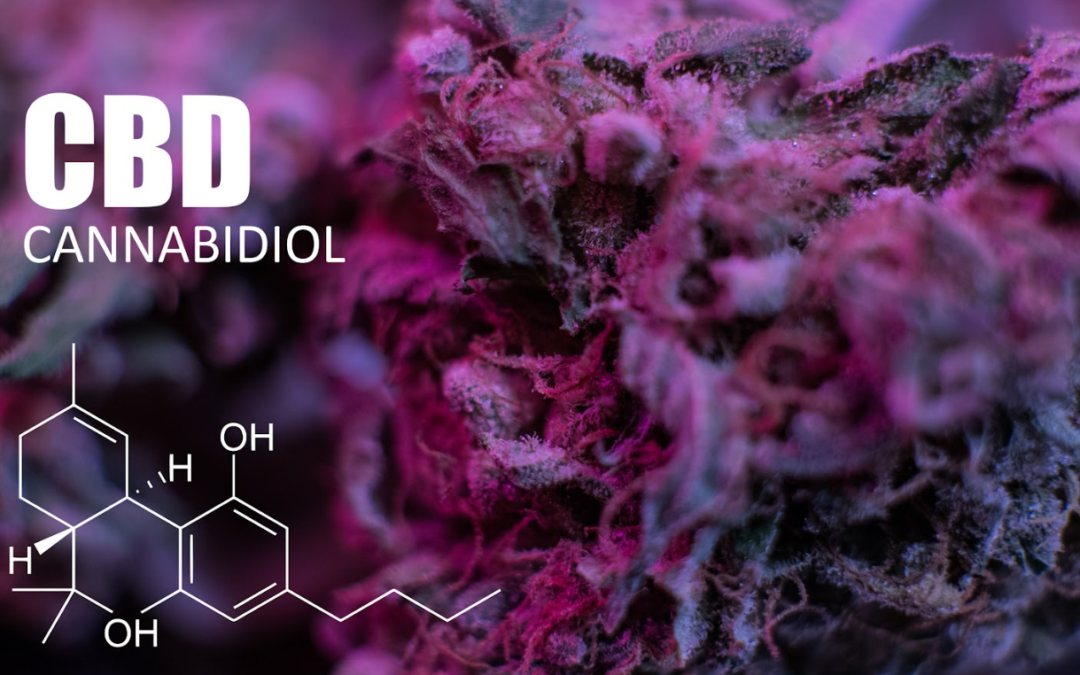What is CBD?
CBD, or cannabidiol, is a non-psychoactive compound found in cannabis plants. It interacts with the body’s endocannabinoid system to offer potential health benefits, including pain relief, reduced anxiety, and improved sleep. This has led to it becoming more and more accepted in the wider public.
No longer is the oil extracted from hemp and cannabis unknown to those in the health field. With the help of mainstream media, CBD has become an aid to many afflictions and is now being consumed or used topically by millions, including many athletes, veterans, children and pets. Furthermore, CBD has been approved for production and sale in all 50 states in the U.S. and has become a staple in medical and recreation sales in Canada as well. The positive research is beginning to pop up from a myriad of studies.
Whether you’re simply interested in CBD or would like to explore new and exciting medicinal products, come with us as we delve into more of what CBD is and its benefits while also exploring the latest developments, how it’s consumed, dispel common misconceptions, and so much more. The era of CBD has begun.
The difference between CBD and THC
Now that you know what CBD is, how is it different from THC? CBD and THC (Tetrahydrocannabinol) are both naturally occurring compounds found in cannabis plants, but they have different properties and effects on the human body:
- Chemical structure — Both CBD and THC have the same molecular structure: 21 carbon atoms, 30 hydrogen atoms, and 2 oxygen atoms. However, there is a slight difference in how these atoms are arranged, which contributes to their different effects.
- Psychoactive effects — THC is best known for its psychoactive effects — it is the compound that causes the “high” associated with cannabis use. CBD, on the other hand, is non-psychoactive. It does not cause a high or significantly alter a person’s state of mind, but it has been shown to influence the body to use its own endocannabinoids more effectively (Mechoulam & Parker, 2013).
- Medical benefits — Both CBD and THC have been shown to have medical benefits. THC can be used to help with conditions such as pain, muscle spasticity, glaucoma, insomnia, low appetite, nausea and anxiety. CBD is used for various health issues like seizure disorders (epilepsy), pain and inflammation, mental disorders and anxiety, and some types of cancers. It’s also been shown to have neuroprotective properties (U.S. Food & Drug Administration, 2021).
- Side effects — CBD is well tolerated, even in large doses, and its side effects are generally mild. They might include fatigue, diarrhea, and changes in appetite or weight. THC, meanwhile, can cause temporary side effects such as increased heart rate, coordination problems, dry mouth, red eyes, slower reaction times, and memory loss. Anxiety and paranoia are also possible (Iffland & Grotenhermen, 2017).
- Drug testing — THC is detectable in standard drug tests, while CBD typically is not. However, since some CBD products may contain trace amounts of THC, they can lead to a positive drug test (Huestis, 2007).
CBD consumption methods
CBD (Cannabidiol) can be consumed or used in various forms, offering flexibility in how people choose to incorporate it into their routines based on personal preferences, the reason for use, and desired effects. Here are some common ways CBD can be taken:
Oral Consumption:
- CBD oil and tinctures — These liquids are applied under the tongue with a dropper, allowing CBD to be absorbed directly into the bloodstream. This method facilitates quick absorption and effectiveness.
- Capsules and pills — CBD capsules and pills offer a convenient way to take CBD with a controlled dosage. They’re commonly used for the systemic treatment of seizure disorders and digestive issues.
- Edibles — CBD-infused edibles, such as gummies, chocolates, and beverages, are a popular and discreet way to consume CBD. Edibles take longer to take effect since they have to be digested first.
Topical Application:
- Creams and lotions — CBD-infused topical products are applied directly to the skin. They are often used for localized pain relief, inflammation, and skin conditions like eczema and psoriasis.
- Transdermal patches — These patches are placed on the skin and deliver CBD directly into the bloodstream over time, offering a consistent dose of CBD for extended periods.
Inhalation:
- Vaping — CBD can be inhaled via vaporizing. This method allows for quick absorption into the lungs, making it one of the fastest ways to experience its effects. However, there are health risks associated with vaping, including potential damage to the respiratory system.
Beverages:
- CBD water, coffee and tea — CBD is also available in infused beverages, offering a refreshing and easy way to consume CBD throughout the day.
Each method has its advantages and onset times for effects. For instance, inhalation and sublingual routes tend to offer quicker relief compared to edibles or capsules, which take longer due to the need to pass through the digestive system. Topical applications are best for localized issues, as the CBD does not enter the bloodstream.
Common misconceptions about CBD
Almost as important as understanding what CBD is, is what CBD isn’t. Common misconceptions about CBD stem from its association with cannabis, lack of comprehensive understanding by the general public, and evolving legal and regulatory landscapes. Below are some widespread myths, clarified with scientific evidence and authoritative sources:
- “CBD is psychoactive and can get you high.”
While CBD is indeed psychoactive in the sense that it may have an effect on the brain, it does not produce the euphoric “high” associated with THC (tetrahydrocannabinol), the main psychoactive compound in cannabis. CBD is often sought for its potential therapeutic benefits without intoxicating effects (World Health Organization, 2018).
- “CBD has no side effects.”
Although CBD is generally well tolerated and considered safe, it can cause side effects in some individuals. Possible side effects include fatigue, diarrhea, changes in appetite, and interactions with other medications (Iffland & Grotenhermen, 2017).
- “CBD is a cure-all.”
While research supports the potential health benefits of CBD for certain conditions such as epilepsy, anxiety, and chronic pain, it is not a panacea. The effectiveness of CBD varies, and more research is needed to understand its full therapeutic potential and limitations (Whiting et al., 2015).
- “Higher doses of CBD are more effective.”
CBD does not follow a linear dose-response relationship in all cases. For some conditions, there might be an optimal dose range beyond which effects do not increase or could diminish. Individuals need to find the right dosage, often starting low and gradually adjusting (MacCallum & Russo, 2018).
- “CBD is addictive.”
Current evidence suggests that CBD is not addictive and does not lead to substance abuse or dependence. This stands in contrast to substances like THC, which can be addictive for some individuals (World Health Organization, 2018).
In conclusion… explore the benefits of CBD for yourself
While the landscape of cannabis and CBD products continues to evolve, it’s crucial to navigate this space with accurate information and a clear understanding of the legalities, potential benefits, and misconceptions surrounding these substances. With more and more people discovering what CBD is and its therapeutic potential without the psychoactive effects of THC, consumers are increasingly looking for reputable sources and high-quality products to meet their needs.
For those interested in exploring premium cannabis products, including pure CBD oil, Shango sets a high standard in the industry, not just in the quality of our offerings but also in customer service and store experience. Shango’s dispensaries are designed with customer convenience and aesthetic appeal in mind, aiming to redefine the retail cannabis experience.
Head into one of our various dispensaries across the country for help in choosing the right CBD product for you, and to browse our entire range of cannabis flowers, topicals, edibles and more.
FAQs
What does CBD do?
CBD (cannabidiol) interacts with the body’s endocannabinoid system, which plays a role in regulating a variety of functions including pain, mood, sleep, and immune response. It may help reduce inflammation, pain, and anxiety, and improve sleep.
Is CBD the same as Marijuana?
No, CBD is not the same as marijuana. CBD is one of many compounds found in the cannabis plant, but unlike THC (tetrahydrocannabinol), it does not produce a psychoactive effect or “high.” Marijuana typically refers to cannabis plants or products that contain high levels of THC.
What will CBD do to my body?
CBD may offer therapeutic benefits, such as pain relief, reduction of anxiety and depression, and alleviation of certain seizure disorders. It can also have anti-inflammatory properties. The exact effects can vary based on the individual and the condition being treated.
Who should avoid taking CBD?
People taking prescription medications that could interact with CBD, pregnant or breastfeeding women, and individuals with certain health conditions should consult a healthcare provider before using CBD. It’s important to consider potential interactions and contraindications.
Is CBD high-risk?
Generally, CBD is considered low-risk for most people when used appropriately. However, potential risks include interactions with other medications and side effects like drowsiness or digestive issues. Ensuring product quality and consulting with a healthcare provider can help mitigate these risks.
References:
- World Health Organization. (2018). Cannabidiol (CBD) Critical Review Report. Geneva: World Health Organization.
- U.S. Food & Drug Administration. (2021). FDA Regulation of Cannabis and Cannabis-Derived Products, Including Cannabidiol (CBD).
- Iffland, K., & Grotenhermen, F. (2017). An Update on Safety and Side Effects of Cannabidiol: A Review of Clinical Data and Relevant Animal Studies. Cannabis and Cannabinoid Research, 2(1), 139-154.
- Whiting, P. F., Wolff, R. F., Deshpande, S., Di Nisio, M., Duffy, S., Hernandez, A. V., … & Schmidlkofer, S. (2015). Cannabinoids for Medical Use: A Systematic Review and Meta-analysis. JAMA, 313(24), 2456-2473.
- MacCallum, C. A., & Russo, E. B. (2018). Practical considerations in medical cannabis administration and dosing. European Journal of Internal Medicine, 49, 12-19.
- Huestis, M. A. (2007). Human cannabinoid pharmacokinetics. Chemistry & Biodiversity, 4(8), 1770-1804. This paper discusses the pharmacokinetics of THC and CBD, including their detection in drug tests.
- Mechoulam, R., & Parker, L. A. (2013). The endocannabinoid system and the brain. Annual Review of Psychology, 64, 21-47. This review discusses the endocannabinoid system, including the psychoactive effects of THC and the non-psychoactive properties of CBD.


